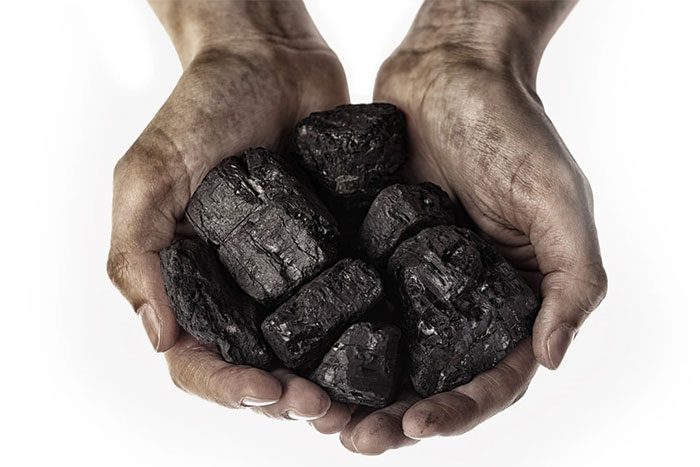As the global demand for animal feed continues to rise, researchers in China have developed a method for producing protein from coal that is both cost-effective and highly efficient.
The South China Morning Post (Hong Kong, China) reports that this is the first time the production of protein from coal has been economically feasible.
With a growing global population, the demand for food is steadily increasing, in direct correlation with the demand for protein used in animal feed. In particular, China is facing a severe protein shortage.
Despite being a world leader in pig and aquaculture farming, China has remained dependent on imported soybeans for animal feed, with annual imports around 100 million tons and a dependency rate exceeding 80%. Therefore, developing rapid and efficient methods for producing high-quality protein is crucial. The most promising solution is synthesized biotechnology.

Coal used as a raw material for protein synthesis. (Image: Getty).
There are several approaches to synthesizing biological protein. The simplest method involves converting by-products from the food and agriculture industries, such as distiller’s grains (a by-product of wet corn milling), distillers’ grains, and straw, into higher-value protein through microbial transformation. However, these by-products have unstable supply and quality, making large-scale industrial production challenging.
Another method involves industrial fermentation processes using energy-producing chemicals. For example, using methanol derived from coal as a raw material. This is the focus of research led by Professor Wu Xin from the Tianjin Institute of Industrial Biotechnology under the Chinese Academy of Sciences (CAS).
Professor Wu Xin wrote in a post for the China Science Bulletin: “With global reserves of approximately 1.07 trillion tons, coal can be converted into methanol through gasification. Methanol mixed with water is highly effective in the fermentation process and does not require specialized equipment.”
Professor Wu Xin’s team has developed a technology for producing protein that is cheaper than traditional protein synthesis processes. This discovery was published in the peer-reviewed journal Biotechnology for Biofuels and Bioproducts on November 17, 2023.
“Research on synthesizing cell protein from methanol began in the 1980s, primarily focusing on selecting yeast strains and optimizing production processes. However, due to high costs, methanol-synthesized protein products could not compete with soybean protein and were not produced on a large scale,” Wu stated.
To address this issue, his team collected over 20,000 yeast samples from vineyards, forests, and wetlands across China. From these samples, they identified strains capable of efficient utilization.
By eliminating specific genes in wild Pichia pastoris strains, they created a yeast capable of significant methanol metabolism and tolerance. This technique has propelled their goal of converting methanol into protein.
The researchers achieved a dry cell weight of 120g/liter and a crude protein content of 67.2% using Pichia pastoris. The conversion efficiency of methanol to protein reached 92% of the theoretical value. This high conversion rate makes this protein production method economically attractive.
Wu noted that it does not require arable land, is unaffected by seasons, and climate. Furthermore, the protein content in microorganisms ranges from 40% to 85%, significantly higher than that of natural plants.
These organisms are also rich in essential amino acids, vitamins, inorganic salts, fats, and carbohydrates, enabling them to partially replace fishmeal, soy, meat, and skim milk powder in various applications.
Bacterial protein is highly nutritious and free from allergens found in soybean protein, making it an excellent protein source.


















































